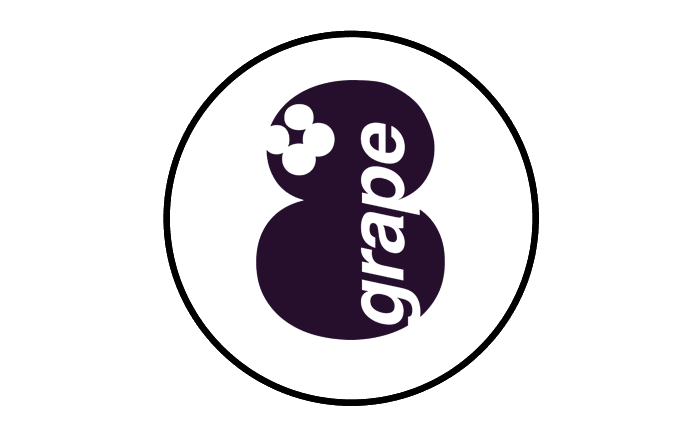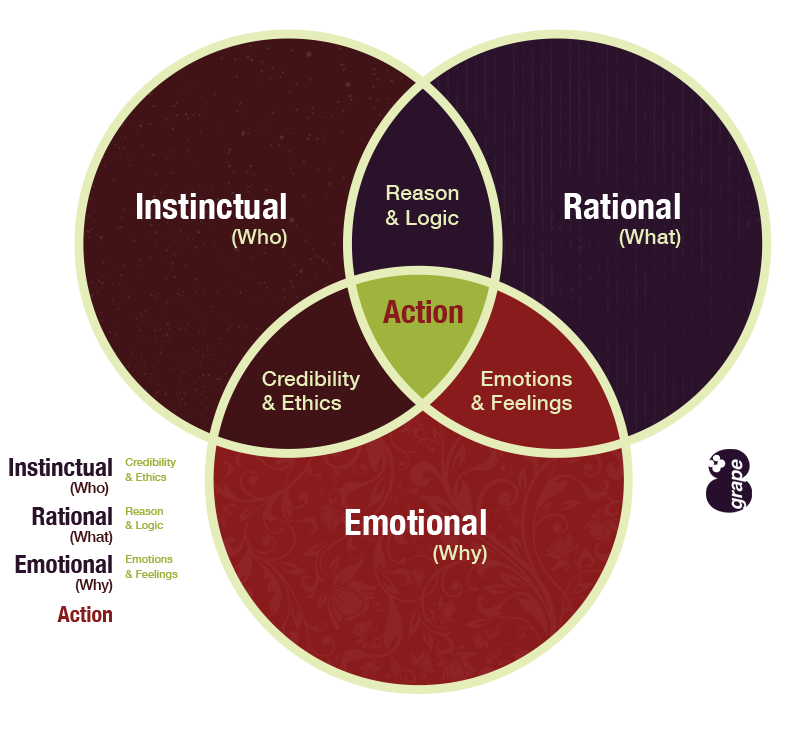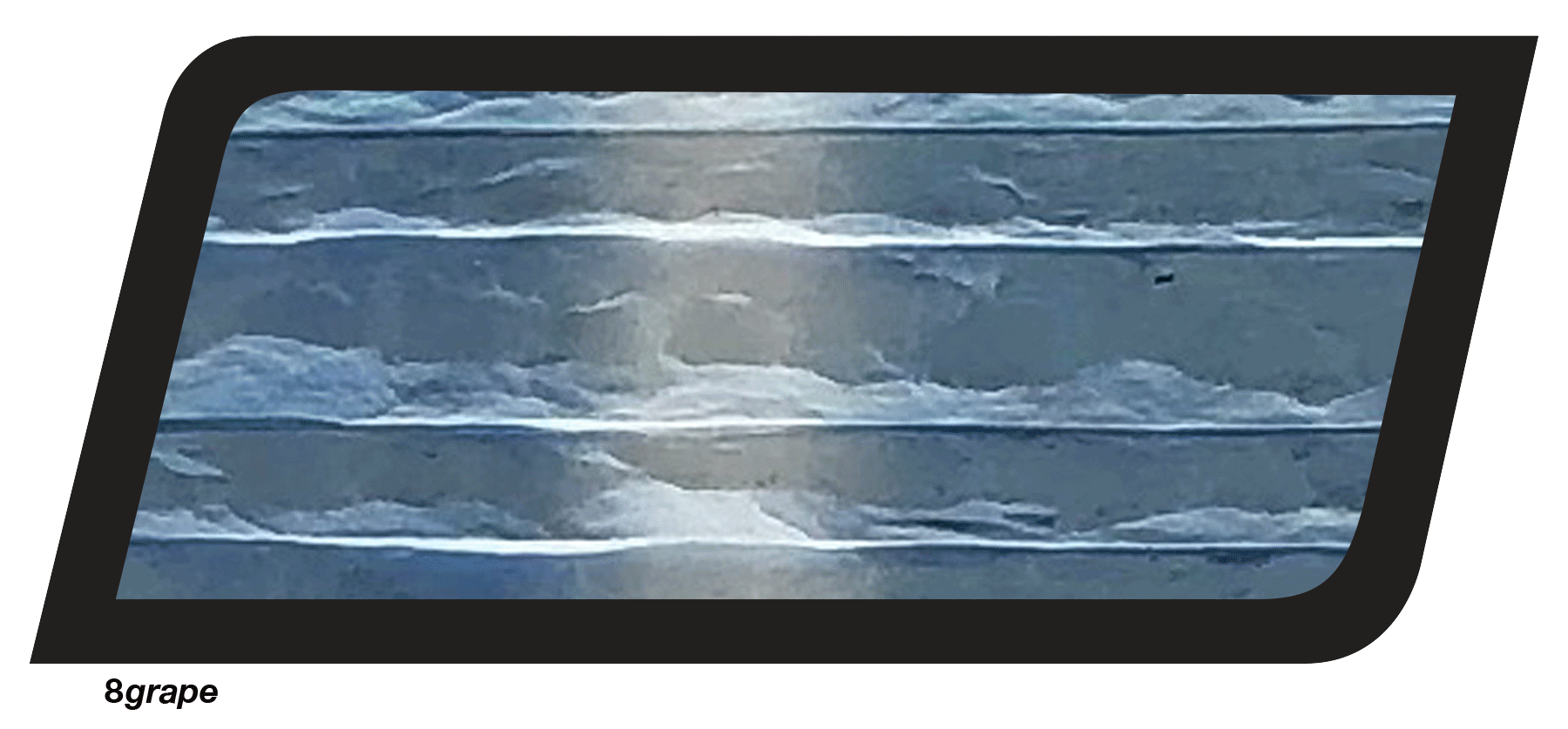
“Rhetoric may be
defined as the faculty
of observing, in any
given case, the available
means of persuasion.”
— Aristotle

3 Appeals
Below are the 3 Rhetorical Appeals and two others you might not be familiar with.
The great Greek philosopher Aristotle developed something he called the 3 Rhetorical Appeals.
Aristotle observed the ancient Greek senate meetings and wondered why some Senators were was more convincing than others. He concluded that there were three things persuasive senators did that the other senators didn’t.
Ethos, logos, and pathos were named by Aristotle as the three main rhetorical appeals used in persuasion.
Ethos refers to the credibility of the speaker, logos appeals to logic and reason, and pathos is an appeal to the emotions of the audience. He described these concepts in his work Rhetoric to explain how to construct a persuasive argument.
Ethos: An appeal to the speaker's character; credibility, authority, reputation, and trustworthiness.
Logos: An appeal to logic and reason such as: statistics, evidence, and well-reasoned logical arguments.
Pathos: An appeal to the emotions: vivid language, storytelling, and anecdotes to evoke feelings like sympathy, anger, or hope.
Deeper Defintion:
Ethos, Pathos, and Logos are mindsets used to persuade used to convince people and audiences. They are also referred to as the 3appeals (Aristotle used the Greek names). There are two additional appeals called Kairos (timing), and Telos (purpose).
Applications:
-
Ethos is the Greek word for “character.” The word “ethic” is derived from ethos.
Ethos or the ethical appeal, means to convince an audience of the author’s credibility or character.
An author might use ethos to show his audience that he is a credible source and is worth listening to.
Ethos can be developed by choosing language that is appropriate for the audience and topic (this also means choosing the proper level of vocabulary), making yourself sound fair or unbiased, introducing your expertise, accomplishments or pedigree, and by using correct grammar and syntax.
During public speaking events, a speaker will typically have at least some of his pedigree and accomplishments listed upon introduction by a master of ceremony (MC) or the person who introduces them.
Example of Ethos:
[ Stanford Commencement Speech by Steve Jobs. June 12, 2005. ]“Woz and I started Apple in my parents garage when I was 20. We worked hard, and in 10 years Apple had grown from just the two of us in a garage into a $2 billion company with over 4000 employees. We had just released our finest creation — the Macintosh — a year earlier, and I had just turned 30...
During the next five years, I started a company named NeXT, another company named Pixar, and fell in love with an amazing woman who would become my wife. Pixar went on to create the worlds first computer animated feature film, Toy Story, and is now the most successful animation studio in the world. In a remarkable turn of events, Apple bought NeXT, I returned to Apple, and the technology we developed at NeXT is at the heart of Apple's current renaissance. And Laurene and I have a wonderful family together.”
Using Ethos establishes a character, their ethics, and credibility.
This is one of the 3 Appeals but it is by using the whole trifecta of the next two appeals are by far more persuasive.
[ Go to Pathos next. ]
-
Pathos or the emotional appeal, means to persuade an audience by appealing to their emotions.
Authors use pathos to invoke sympathy from an audience; to make the audience feel what what the author wants them to feel. A common use of pathos would be to draw pity from an audience. Another use of pathos would be to inspire anger from an audience, perhaps in order to prompt action. Pathos is the Greek word for both “suffering” and “experience.” The words empathy and pathetic are derived from pathos.
Pathos can be developed by using meaningful language, emotional tone, emotion evoking examples, stories of emotional events, and implied meanings.
Example of Pathos:
[ I Have a Dream by Martin Luther King Jr. August 28th, 1963. ]
"I am not unmindful that some of you have come here out of great trials and tribulations. Some of you have come fresh from narrow jail cells. And some of you have come from areas where your quest -- quest for freedom left you battered by the storms of persecution and staggered by the winds of police brutality. You have been the veterans of creative suffering. Continue to work with the faith that unearned suffering is redemptive. Go back to Mississippi, go back to Alabama, go back to South Carolina, go back to Georgia, go back to Louisiana, go back to the slums and ghettos of our northern cities, knowing that somehow this situation can and will be changed."
-
Logos or the appeal to logic, means to convince an audience by use of logic or reason.
To use logos would be to cite facts and statistics, historical and literal analogies, and citing certain authorities on a subject. Logos is the Greek word for “word,” however the true definition goes beyond that, and can be most closely described as “the word or that by which the inward thought is expressed" and, "the inward thought itself" (1). The word “logic” is derived from logos.
Logos can be developed by using advanced, theoretical or abstract language, citing facts (very important), using historical and literal analogies, and by constructing logical arguments.
In order to persuade your audience, proper use of Ethos, Pathos, and Logos is necessary.
-
This is the appeal to “Timeliness”. In Greek, Kairos means “opportunity”, “right time”, “season” and “weather”. Kairos is about recognizing the individuality and uniqueness of a situation and drawing persuasion support from the timing, atmosphere and the setting of what is happening at that very moment. A good example is seen by looking at how retailers try to influence consumers to buy a certain product leading up to Valentine’s Day or Christmas. It is a call to act now because of the current circumstances.
Unlike the other appeals, Kairos is a
dynamic rather than a fixed principle. It demands a high degree of flexibility and agility from the persuader.F o r example: you have prepared a speech on Brexit for a 90% “pro-Brexit” audience. Just before entering the room to give your speech, the organizers apologize to you informing you and that they’ve made a terrible mistake in their brief and in fact, the audience in the room are actually against Brexit and are convinced that staying in Europe is the best option for the UK. In situations like these and regardless of your own viewpoint, if you want to persuade, you will have to adjust your speech to fit the new circumstance.
Kairos, in this case, is also about the appropriateness of your tone and making sure that your argument matches the situation.
-
This is the appeal to “Purpose” and “end goal”. Aristotle argued that all things - arguments, living beings and objects - have a function or a purpose. Telos informs every aspect of your communication; it is about making sure that your communication as a whole or the built-in arguments are serving a goal. It may be your goal to get hired, or it’s a goal that has been set by your audience. The questions to ask here are: What purpose do these things serve? Are you appealing to the end goal of the audience?
For example, when creating your pitch content, Telos would be the central thread that binds your key messages and arguments together, thus helping you create a more persuasive case. If the purpose of your pitch is to help your client close a gap in their balance sheet, it is very important that you keep this purpose in mind while creating your content; every argument you make is then an elaboration on how you can close that gap supported with additional data and information. In this case, you can compare your key arguments and messages to separate rivers that are all flowing in the same direction and ultimately into the same sea, which is your end goal.
We can translate the 3 Appeals into modern English and how they are used in branding, advertising, marketing and persuasion today.

Neurochemical: locating the brain’s “buy” button.
Reaching it requires skill and knowing what images and text to use.
“Feelings, not analytical thinking drive 85% of buying decisions. However, marketers typically focus on the remaining 15% of a buying decision— a rational evaluation of features and functionality.”









